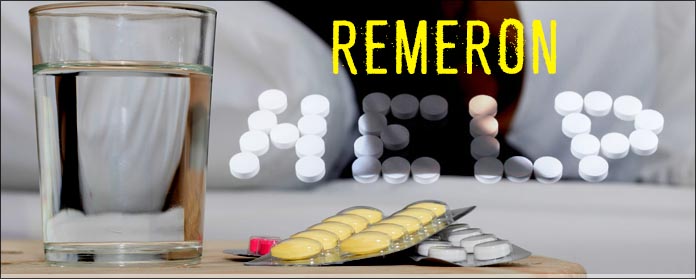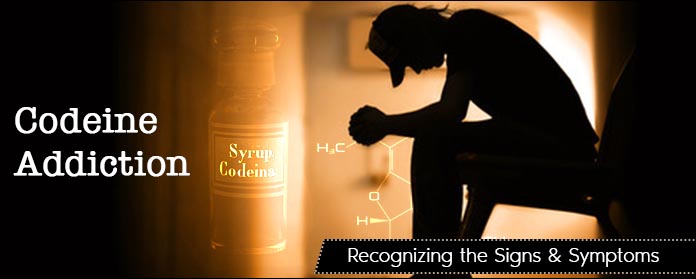The opioid crisis started as people began flooding clinics in search of a way to cure their physical pain. As a way to cope with physical stress from their jobs, or from just growing old, people turned to pills. And no one told these people that these pills could be addictive.
The same concept applies to people in extreme mental pain. These people turn to therapists and institutions for help relieving their pain. Just like with people in physical pain, they are often handed pills and sent on their way.
Mirtazapine, known as the brand name Remeron, is one of the pills people are given to treat depression. The pill treats clinical depression and insomnia by essentially sedating people. However, those sedative effects can attract people looking to use it recreationally, and can later lead to an addiction.
If you’re just hearing about Remeron addiction, keep reading for information on how it develops, and how to recover.
Mirtazapine Is A Depressant Helping the Depressed
Mirtazapine has been studied to treat a variety of mental health problems. It’s been proven to help people suffering from anxiety disorders or obsessive-compulsive disorders, as well as insomnia. In fact, the only thing it may not be able to help treat is psychotic disorders.
The drug is even used to help treat addictive behaviors in people recovering from opiate or alcohol addiction.
It’s so effective against such a large variety of illnesses because of its overarching effects. While the drug targets norepinephrine and serotonin, as with any antidepressant, it also has sedative effects. That soft sort of sedation helps people think clearer and calmer, making it attractive to people who may not always think straight.
Remeron also has a wide variety of side effects, as part of being a tricyclic antidepressant. This an early kind of antidepressant which, while effective, also caused many negative effects on their users.
Remeron (Mirtazapine) Side Effects Can Be Fatal
The two most common side effects for mirtazapine are natural for sedatives like it. Weight gain and increased drowsiness are common for any chemical that reduces mental activity in the way Remeron does. The pill can also help people suffering from eating disorders if applied correctly since it increases people’s appetites too.
However, the innocuous kinds of side effects come with some potentially deadly ones too. Once a person starts using Remeron recreationally, those seemingly harmless side effects can become dangerous. Most people also mix recreational drugs with alcohol, which only heightens their effects.
For example, a person can start to experience terrifying, racing thoughts that make little sense. The drowsiness experiences in lower doses can start to become a light-headedness that makes a person feel like passing out. Since the pill also affects serotonin levels, a person may experience hallucinations or a loss of coordination, as a result of radically increased serotonin.
While Remeron is generally safe if used as prescribed, people may start to abuse after finding its sedative effects. And once that happens, they should be placed on a different antidepressant. They should also start trying to recover from their addiction.
Remeron (Mirtazapine) Addiction Is Different From Other Kinds
Most addictions develop as a result of unrecognized mental health issues. Sometimes people may be stuck in the same pattern of thinking they used during a past trauma. Other times, they may simply be an undiagnosed depressive or have a personality disorder.
Remeron addiction doesn’t come about like that. Most addictions come about as a result of self-medication for mental health issues. Remeron addiction is the result of professional intervention against other mental health issues.
Most addiction treatments focus on introspection and addressing underlying issues. Yet, with Remeron addiction, those underlying issues have been addressed. Instead, the addiction likely comes about as a result of deeper, entirely unrecognized problems.
These problems can often indicate a personality disorder. A person may not realize how much they crave sedation until they try Remeron, and then they can’t get enough of it. Or, they may not realize how much they dislike being themselves until Remeron gives them a chance not to be.
Even if Remeron addiction is more complex than typical addiction, its effects are the same. It’s still a massive problem and must be addressed by the people in a person’s life.
Noticing Remeron (Mirtazapine) Addiction Is Like Noticing A Mental Disorder
It can be hard to notice if someone may be abusing their antidepressant medication. Since it’s prescribed by a doctor, people assume it’s safe to take. But it can be abused all the same.
The signs of Remeron abuse are mostly the same as any other kind of addiction. After prolonged use, a person’s body will show signs of addiction with bloodshot or glazed eyes. Their behavior may suddenly change as well, and you may no longer recognize them.
Yet, that is only after prolonged use. A person can pick up on someone’s addiction if they simply talk to them about their antidepressant usage. Asking how many pills they take a day and how many they have left can reveal abuse faster than waiting for their body to show it.
Remeron (Mirtazapine) Withdrawal
Intense withdrawal symptoms can occur if Remeron is just stopped. It is recommended to wean off of the drug to avoid withdrawal symptoms. This will lengthen the detox period but will also lessen the servility of withdrawal.
Remeron withdrawal symptoms:
-
- Headache
- Anxiety
- Panic attacks
- Appetite changes
- Vertigo
- Dizziness
- Sweats
- Irritability
- Fatigue
- Insomnia
Since Remeron addiction often comes about as the result of previously unrecognized mental issues, it’s essential to address them. Friends and family of people abusing Remeron should emphasize their concern about the person.
Most of all, they should do all they can to ensure the person understands they are safe to share anything about themselves. Remeron addiction can surprise addicts, and they may be unsure of how to talk about what led them to abuse the medicine. By opening the floor and supporting them as they take the time to find the right words for their feelings, they can feel more secure and safe.
Making sure they feel safe when they share something about themselves is the most important part of treatment. Their feelings are new to them and probably to you, so exploring them is frightening. But it has to be done to recover from addiction.
Remeron (Mirtazapine) Addiction Is Almost Unheard Of, But Still Dangerous
Coverage of the opioid crisis has focused on how pain medication can result in death. Yet, there has been little coverage on how mental-pain medication can result in the same thing. Remeron is one of the more common medications to avoid coverage.
At the end of the day, a drug is a drug whether it’s FDA approved or bought from a shady guy in a trench coat. Abusing it can seriously harm people. Addressing why a person abuses it is essential for treating mental issues.
Yet, treatment can be hard. It’s complex and frightening for everyone involved. Contact us, and we’ll help get you the support you need to either address an addiction or help someone else who needs it.





